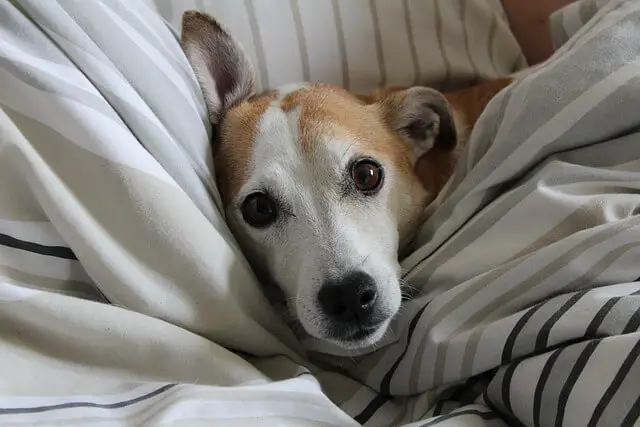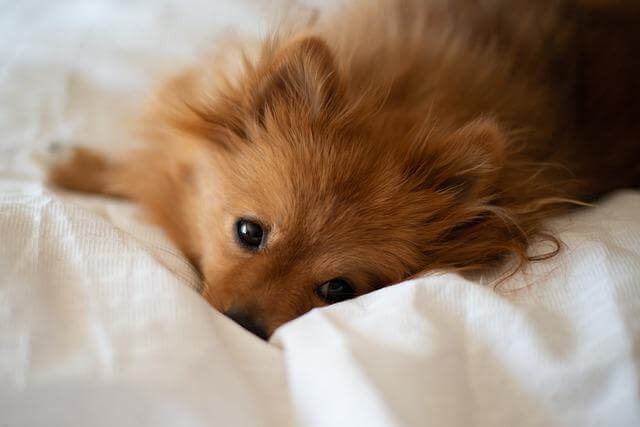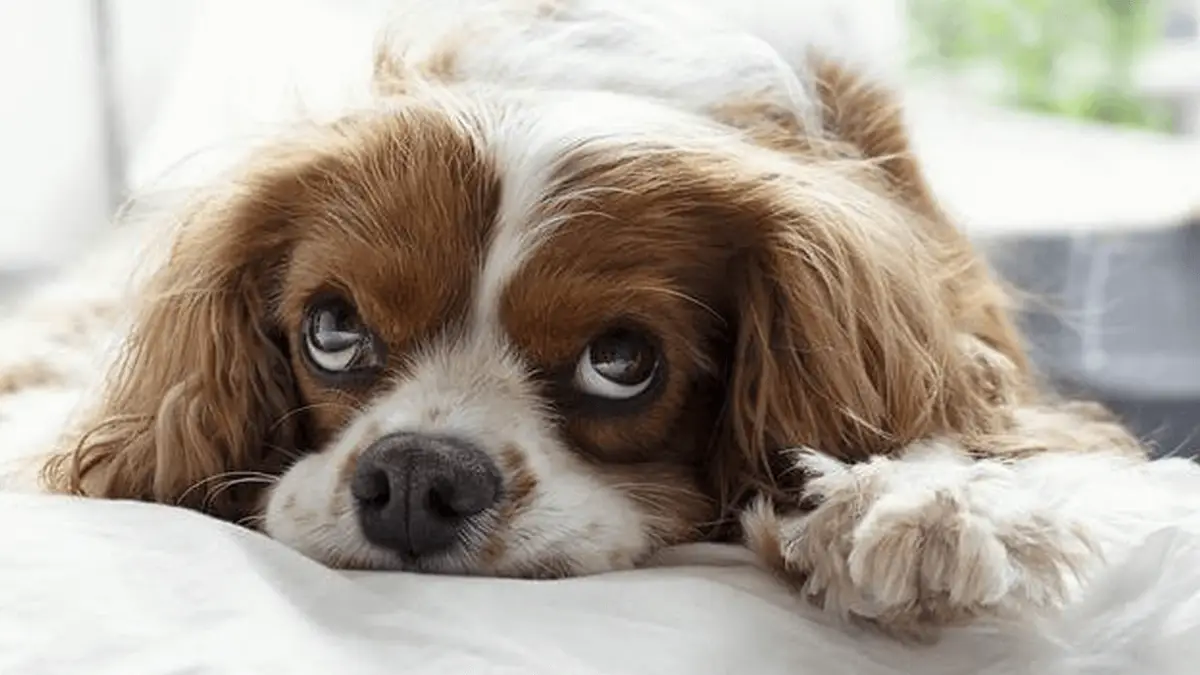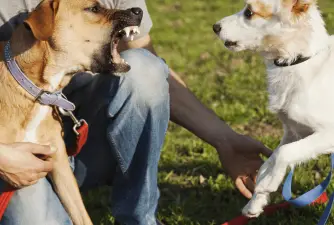5 Main Reasons Why Your Dog Is Peeing on Bed
03.05.2022.
As a dog owner, you're probably fed up with your dog peeing on your bed. Your bed might be ruined by dog urine. In addition, if the urine odor is still present, your dog may be tempted to pee on the same spot over and over again.
Your bed is attractive to your dog, plush and overflowing with your unique scent. You should expect that your dog will be naturally attracted to it. There is a common misconception that dogs urinate on their owners' beds because they display dominance or disobedience. This is not the case at all. However, the reasons for this may be more complex.
Why do dogs pee on their owner's beds? Is there anything that can be done? The first step to resolving this issue is to identify the root cause. Inappropriate urination may need an appointment with your veterinarian, but there are alternative at-home solutions.
RELATED: The 5 Most Common Behavioral Problems with Solutions
Why do dogs pee on their owner's beds?
If you catch your dog urinating on your bed, there are several possible reasons. Before tackling potential behavioral issues, it's critical to rule out medical factors. Here are some of the possible reasons your dog might pee on your bed.
1. UTI
Infections of the urinary tract are the most common cause of dog urination problems. Your veterinarian may want a sample of your dog's urine to do a urinalysis. Antibiotics will be necessary in case of a bacterial UTI. Bladder control can be challenging for dogs with urinary tract problems.

Cystitis (inflammation of the bladder), crystals in the urine, bladder stones, anatomical abnormalities, renal disease, and even cancers are potential culprits of dogs' urinary issues. Medications, dietary changes, and vitamins may usually take care of the majority of urinary issues. However, issues like bladder stones may require surgery.
Diabetes and Cushing's disease might also cause urinary tract problems.
2. Incontinence
Incontinence is a condition that causes dogs to urinate uncontrollably. Some incontinent dogs will drip urine even when awake, although most cases cause dogs to "leak" while sleeping. Certain disorders can lead to incontinence even in young dogs, making incontinence a typical problem in older dogs.
It is not unusual for female dogs to suffer from hormonally-induced urine incontinence. This issue is less common in males. It's a good thing drugs are readily available to alleviate the symptoms.
RELATED: Incontinence In Dogs - Signs, Symptoms & Treatment
3. Potty training problems
Is your pup fully potty-trained? When a dog appears to be housetrained, they may still have a favorite area to relieve themselves inside the home. It is entirely possible that place is your bed! It's time to step up your dog's training if you believe potty training is the problem.

RELATED: 5 Signs Your Dog Needs a Bathroom Break
4. Bursts of intense emotions
Younger pups are more prone to urinating when they're excited. When they are highly enthusiastic or submissive, they tend to trickle some urine. Many dogs outgrow this stage, but if the issue continues well into the dog's adulthood, additional training may be required.
RELATED: Does Your Dog Have ADHD? Can Dogs Even Have ADHD?
When dogs are afraid, stressed, or anxious, they may urinate inappropriately. Changes in your dog's environment could be the cause of their sudden anxiety. Dogs can also be stressed because of underlying medical issues. The first step in dealing with a stressed dog is to rule out any underlying medical issues.
5. Marking
Some dogs have stronger territorial instincts than others. Urine is a popular way of marking their territory. You'll have a serious problem if they decide to mark your bed. Training and behavioral change can help reduce territorial marking.
How to prevent the behavior?
The first thing you should do is call your veterinarian if you discover your bed has a hidden puddle your dog left for you. Your vet will probably want to do a physical exam and collect urine samples. In some circumstances, more lab testing and even radiographs are needed. Based on the results, your veterinarian will present you with a treatment plan.

RELATED: Food Aggression - 5 Tips For Dealing With It
It's time to address your dog's inappropriate urinating once your vet has ruled out potential medical causes. Stopping your dog from soiling your bed is easy if you follow these tips.
1. Restrict access
You need to keep your dog away from the area if they've peed on it. When you're away or too busy to oversee them, this is the most important step to take. Close the door to your bedroom.
Your dog should be on a leash whenever you're entering or exiting your bedroom when the doors are open, and they can walk in and out freely. The leash isn't a punishment but rather a way to communicate to your dog that you value their cooperation.
If your pooch is used to sleeping with you, you can allow them to continue doing it, but only if you're in the room. Make sure the dog understands they're only allowed on the bed when you're getting in.
2. Managing the situation
Because every situation is unique, the technique to resolve the issue will have to be too. If you have a puppy experiencing difficulty with potty training, keep them away from the bed while you work on their potty skills. If you're not seeing the results you'd like, get advice from a trainer.
In case your dog is scared or anxious, they may also benefit from professional guidance. Dogs with low self-esteem can benefit from a compassionate training approach.

RELATED: Dog Licking Paws - What Does it Mean
If you have a senior dog, make an appointment with your vet if you suspect incontinence. It can be caused by anything from old age to disease or medication. To avoid banning your elderly dog because of something they can't control, use doggy diapers or potty pads to keep your bed clean.
Train your adolescent pup to focus on good manners and household rules, and perhaps teach them a few tricks. Anything to keep that mind occupied is a good idea.
3. Control your emotions
Angry reactions are reasonable when you see a damp spot when you go into bed. However, try to avoid punishing or yelling at your dog as much as possible. The only thing your dog will learn from your rage is that you may be dangerous and unpredictable.
Take your dog somewhere else for the time being till you're able to relax. Make your bed. Make a cup of chamomile tea and promise yourself and your dog that you'll think about this in the morning; then go to sleep on clean sheets. You can work on resolving this behavioral issue in the morning. Just keep in mind that this is an issue that can be resolved, and there's no reason to do something you'll feel sorry about later.
World Dog Finder team







Share